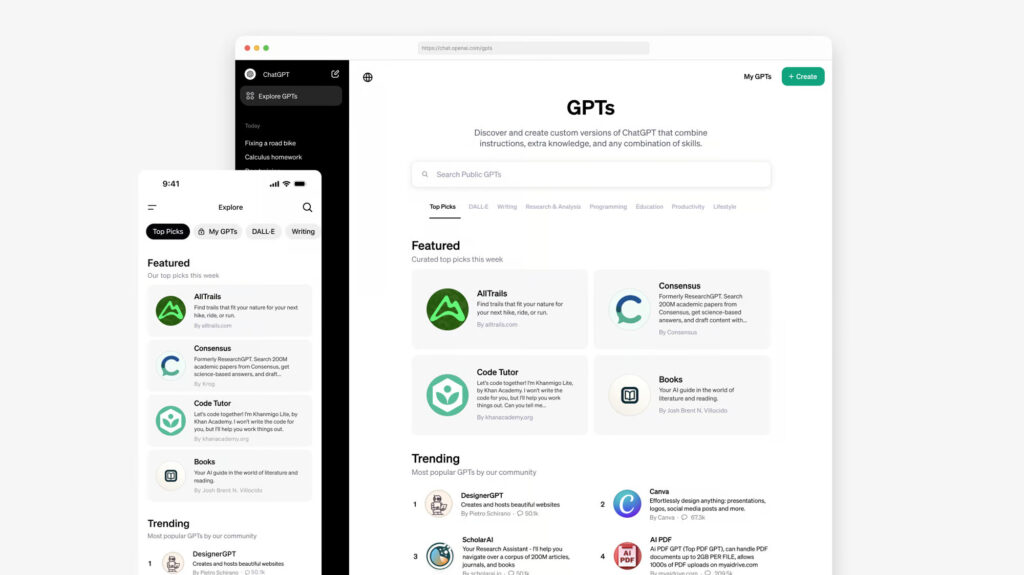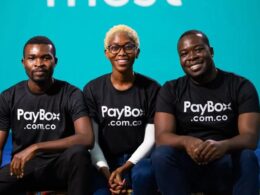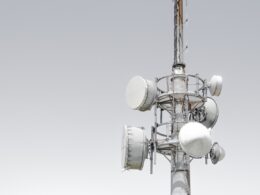On Wednesday, OpenAI launched the GPT Store, an app store for specialized AI chatbots leveraging its ChatGPT technology. The store features various GPT custom apps, including AllTrails for personalized trail recommendations, a Khan Academy programming tutor, a Canva design tool, and a book recommender.
The GPT Store is designed to streamline the promotion and categorization of GPTs, facilitating the easy discovery of desired applications. Subscribers to OpenAI’s $20-per-month ChatGPT Plus can utilize the GPTs, and they also have the ability to create their own, even without programming expertise.
The GPT Store showcases a diverse array of GPTs developed by OpenAI’s business partners and the wider ChatGPT community, which collectively generated 3 million GPTs since the technology’s launch in November.
ChatGPT, based on OpenAI’s GPT-3 and GPT-4 large language models, serves as the foundation for these custom GPTs. They are specialized versions tailored for specific purposes and enriched with additional information. At launch, the GPT Store features four highlighted GPTs, six trending GPTs, and categories spanning Dall-E graphics, writing, productivity, research, programming, education, and lifestyle.
If successful, the GPT Store could signify a pivotal moment, making AI technology more accessible, practical, and lucrative, solidifying OpenAI’s leadership in a space valued by consumers. Drawing parallels to Apple’s App Store for iPhone apps, the GPT Store presents a platform for GPT creators to profit from the use of their specialized models. The specifics of this profit-sharing system are yet to be clarified but are expected to be implemented by the end of March.
As a starting point, US builders will receive compensation based on user engagement with their GPTs
OpenAI Stated.
“As a starting point, US builders will receive compensation based on user engagement with their GPTs,” stated OpenAI, with further details on payment criteria to be provided as the launch date approaches.
The company initially allowed individuals to create their own GPTs, but sharing them was cumbersome, involving copying and pasting web addresses. However, OpenAI is set to change this with the upcoming launch of the GPT Store next week. Despite the slight delay from the original November launch date, this move follows the company’s recent organizational changes, including the firing and rehiring of Chief Executive Sam Altman.

Similar to app store operators like Apple and Google, who typically take a percentage of app store revenue (often 30%), OpenAI’s revenue-sharing model is yet to be fully revealed. However, the company intends to establish GPTs as a new business for both itself and the creators.
“Revenue sharing is important,” emphasized Altman during a press conference in November. “We’re going to pay people who build the most useful GPTs a portion of our revenue.












